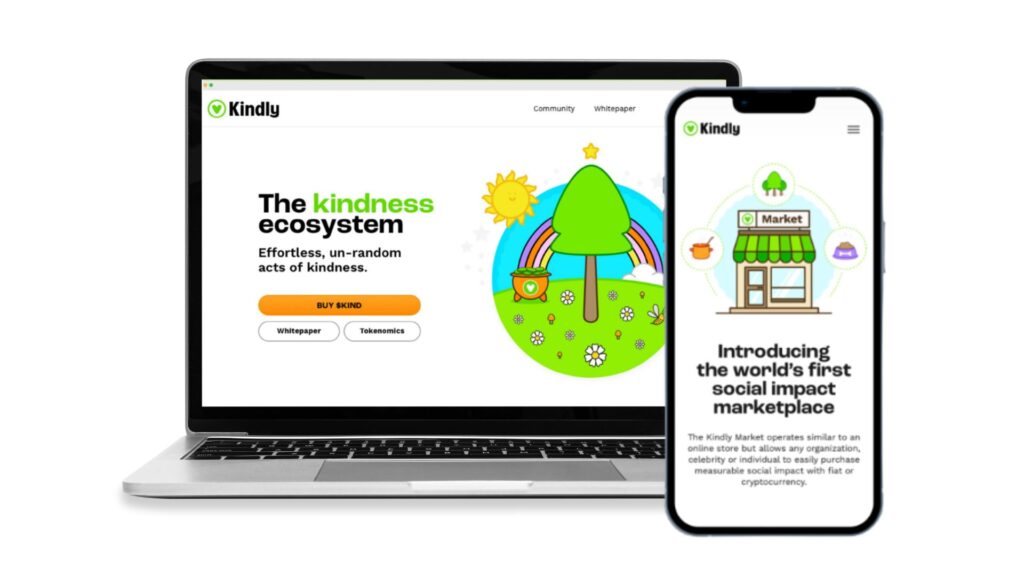Bitcoin donations started back in 2017 when an anonymous contributor donated 5,104 Bitcoin to launch the Pineapple Fund. The fund gave Bitcoin donations to 60 charities worth more than $55 million. They are now valued at over $200 million.
As of 2022, almost all charities accept Bitcoin donations and the number of charitable donations in Bitcoin form is on the rise. The Giving Block’s analysis shows that the volume of cryptocurrency donations increased from $4.2 million in 2020 to $69.6 million in 2021. Over the same time frame, the volume of crypto donations increased by 1,558% or nearly 16 times. Additionally, the average amount donated to cryptocurrency increased by 236% from $3,109 on average in 2020 to $10,445 on average in 2021.
We accept the following
cryptocurrencies:
Supported cryptocurrencies and trading pairs
Coinbase Prime supports more than 240 digital assets and 300 different trading pairs. Clients can also custody more than 425 digital assets, inclusive of 38 different chains, in one of our secure and regulated custodians.
Clients may have different asset availability based on geographic restrictions or which Coinbase entity they choose to custody assets with. If you are a Prime client and want to view asset availability with proper geographic restrictions, you can 1) view assets in the Prime user interface, or 2) query our products end point. (For assets available on Coinbase Exchange, please go here.)

In recent years and especially in the first few months of 2021, the topic of Bitcoin and cryptocurrency has become as much of a media phenomenon as a finance sensation, and an appreciation projection set the price of Bitcoin to skyrocket to $400,000 later this year.
As a result, more and more investors are starting to look at this increasingly popular digital asset as the currency of the future, driving its mainstream adoption forward.
Given its humble beginnings, as a decentralized online currency relegated to the deep corners of the Internet, the rise of cryptocurrency has been a somewhat unexpected phenomenon in global finance. And yet, for-profit businesses and non-profits alike are increasingly opening their doors to cryptocurrency transactions, with more and more international charities now accepting Bitcoin donations or contributions of other popular cryptocurrencies like Ethereum and Litecoin.
Food for Life Global is proud to be one of the international food relief charities spearheading this change, as we believe that accepting cryptocurrency donations will not only meet the evolving needs and preferences of our donors but also help us achieve our goal of ending child hunger more sustainably and efficiently.
So, what do you need to know before getting started with Bitcoin or other cryptocurrency donations, and why do we believe using cryptocurrency will help us create a future free from food insecurity?

Bitcoin, Cryptocurrency, Blockchain… What Does It All Mean?
Let’s start by taking a closer look at some of the most used terms in the realm of cryptocurrency and understand how this revolutionary digital asset works.
Cryptocurrency is a decentralized virtual currency secured by cryptography, a highly secure system making the currency impossible to counterfeit. Cryptocurrencies rely on a decentralized network called blockchain technology, which allows the currency to exist outside of any geographical restrictions and outside of any government, therefore benefitting from deregulation and generous tax breaks.
Although cryptocurrencies are known for their exchange rate volatility, a rising number of investors and consumers continue to use them for online transactions thanks to their transparency, portability, and inflation resistance.
While Bitcoin is the most well-known cryptocurrency on an international level, there are actually over 4,000 different cryptocurrencies available as of January 2021, some with little to no traction or trading volume, and some enjoying increasing popularity, like Litecoin, Polkadot, Doge, Elongate, and Chainlink.
How Do Cryptocurrencies Work?
So, how do these virtual currencies actually work when it comes to making an online transaction?
First of all, users need to exchange their offline currency for Bitcoin or other denominations and collect them in a digital “wallet,” which is used to sign transactions.
Another way of completing online transactions with digital currency is the use of crypto tokens, these are more commonly used for investment purposes and crowdfunding initiatives. Through this method, cryptocurrencies are denominated in virtual “tokens,” each representing a certain unit of value and presented as a tradable asset with its own blockchain.

How to Donate Bitcoins and other Cryptocurrencies to Charity
So, with definitions and inner mechanisms aside, let’s see how first-time Bitcoin users can leverage the security and transparency of this transaction method to donate to a charity of their choice.
First things first, you should know that not all charities currently accept Bitcoin or other cryptocurrencies as payment, so you should first check. If the charity does accept Bitcoin or other cryptos, you’ll be able to process the transaction by sharing your virtual wallet and putting down the number of tokens you wish to donate after selecting your cryptocurrency of choice. Most cryptocurrency donation pages will also display an automatic converter so you can easily keep track of your expenditures in your national currency.
Charity mining is also becoming more well-known among tech-savvy Bitcoin users, allowing donors to mine cryptocurrency alongside a like-minded community. These “mining for charity” initiatives put the users’ device power together for generating the currency and then donating a portion of the resulting revenue to a charity of their choice.
How to Donate Bitcoin to FFLG
If you’re looking to donate Bitcoin or other cryptocurrencies to Food for Life Global, we’ve made the process as easy and as intuitive as it can be, so you can support our organization’s vision of ending child hunger through environmentally sustainable, plant-based food donations.
All you have to do is head over to our crypto donations page or scroll down below, select the cryptocurrency you wish to use, and complete the transaction. We accept a large number of different cryptocurrencies besides Bitcoin and Ethereum, such as Litecoin, Chainlink, Bitcoin Cash, and Basic Attention Token. Once the transaction has come through, we will provide a receipt for tax purposes.
Make an Impact
As you can already tell, the transaction process is just as easy to complete as a regular bank transaction. However, there are a few tax-related considerations you should get familiar with before pledging Bitcoin to our charity.
Crypto donations in Numbers
From 2020 to 2021, the total yearly volume of bitcoin donations made through the giving block increased by 1,558%, or more than 16 times.
From 2020 to 2021, the cash value of average cryptocurrency donations increased by 236%.
In comparison to the average online cash donation, which is now estimated to be $128, the median crypto donation in 2021 was $10,455, which is 82 times larger.
A cryptocurrency specifically for Charity: Kindly Coin
With cryptocurrency donations getting more and more popular FFLG created a new crypto project named Kindly Coin. The fundamental mission of Kindly Coin is to simplify the generation of demonstrable social impact utilizing the FFLG’s existing infrastructure and expertise. The goal of Kindly Coin is to use blockchain technology and The Kindly Ecosystem to offer a radically simplified approach for purchasing, calculating, and carrying out a verified measurable social effect.

In response to the development of socially conscious consumers, large organizations, financial institutions, brands, influencers, and small businesses are implementing various elements of environmental, socioeconomic, and corporate governance (ESG) into their operations. Therefore, the need for socially responsible businesses that can give people a dependable, transparent, and verifiable means to contribute to both the environment and society is vital.

Are Bitcoin Donations Taxable?
One of the biggest benefits of charity Bitcoin donations is that they are considered a non-taxable event, meaning that you will not owe any capital gains tax on the appreciated amount and that you might be able to deduct the donation from your taxes.
By getting two considerable tax benefits in one, donors can benefit enormously from charity crypto donations. The amount you can deduct once tax season comes around is based on the property’s fair market value, which is equal to the spot price at the time of the donation.
In terms of how to report your cryptocurrency donation on your yearly tax return, the process will largely depend on the contribution amount.
For donations under $250, the donor just has to show a receipt of the donation (provided by the charity) and keep it for their records, while for donations between $250 and $500 donors are required to show a “contemporaneous written acknowledgment” from the organization.
For sums over $500 and over $5,000, donors will be required to file an IRS Form 8283 (Noncash Charitable Contributions), and for the latter an additional qualified appraisal.
Why Donate Bitcoin to Our Charity, FFLG?
With these generous tax benefits in mind, it’s easy to see why more and more donors are choosing to make their charitable contributions by using Bitcoin and other popular cryptocurrencies.
But why should you consider choosing Food for Life Global as the recipient of your Bitcoin charity donation?
Food for Life’s core vision is one of a world free of child hunger and food insecurity, and we have been running food relief initiatives around the world for over twenty-five years to see this vision through. Our dedicated teams work around the clock to deliver sustainable and nutritious plant-based meals to populations in need, and we are proud to be known as the most cost-effective food relief charity in the world.
By donating to our cause using Bitcoin or other cryptocurrencies you prefer, you can help us make our operations even more sustainable, fast-acting, and cost-effective so that we can continue helping children in need.
Cryptocurrency donations, in fact, are exempt from the hefty international transaction fees involved in standard donations, allowing us to use larger funds to sustain our projects, with no portion of your generous donation going to intermediary banks.
This way, you’ll also be guaranteed that your crypto donation is going where you want it to go, and thanks to the transparent and accountable nature of blockchain technology, you’ll also be able to see where, exactly, your donation is being spent.
All in all, this is an incredible opportunity for both charities and donors to be more in charge of their funds and for nonprofits to be held accountable for the way donations are being used. While we do make sure that prospective donors can donate in a number of different ways, including direct sponsorship and standard bank transfer donations, we continue working toward making Bitcoin donations more accessible to donors who wish to support us in the most cost-effective, fast, and efficient way possible!
Make an Impact
Doing Your Bit with Bitcoin and Cryptocurrency
Cryptocurrency donations are an exciting new milestone for donors and nonprofits looking to manage their funds in a more transparent and direct way.
While we encourage our donors to look deeper into how crypto donations are changing and improving the work of charitable organizations like Food for Life Global, you can choose to contribute to our cause in any way you feel comfortable and get in touch with our team with any additional questions you might have along the way.
Frequently Asked Questions about Bitcoin Donations
Yes! You can donate Bitcoin to a growing number of international charities working to tackle social and economic issues around the world.
You can choose to make a direct cryptocurrency donation on the organization’s website, visit the platform The Giving Block, or even participate in a “mining for charity” initiative to donate a portion of your cryptocurrency mining revenue to a nonprofit of your choice.
On the other side of the spectrum, charities wishing to start accepting this growing digital asset can easily sign up to Coinbase Commerce or other digital free tools, set up a profile and a Bitcoin wallet, and start receiving Bitcoin donations through their website or through organized crowdfunding.
A Bitcoin donation is a charitable donation made through Bitcoin tokens, tracked and registered through the public-domain software blockchain.
The Bitcoin donation can be exchanged for national currencies, invested, or traded for goods and services in return.
Yes, as long as you work with a reliable charity, Bitcoin donations are completely safe. If you have doubts about an organization you can do a quick google search with their wallet address and research the organization via BBB.
Yes, there are currently multiple charity cryptocurrencies such as Kindly Coin by FFLG.
There are various benefits to donating cryptocurrency such as tax deductions, saving you time and effort, it’s transparent and safe.
Yes! Compared to using a cheque, credit card, or debit card, making direct donations via digital currency is safer. Due to the high level of security surrounding blockchain transactions, you, your gift, and the organization you are supporting are all protected.
We accept the following
cryptocurrencies:
- Bitcoin (BTC)
- Ethereum (ETH)
- USD Coin (USDC)
- Dogecoin (DOGE)
- Dai (DAI)
- Bitcoin Cash (BCH)
- Litecoin (LTC)






2 Comments
Guten Tag!
Warum kann ich nicht ganz normal mit meiner Kreditkarte eine Spende machen?
Ich will mit Kryptowärung nicht zu tun haben, ich kenne mich damit nicht aus und Ihre Erkärung darüber hilft mir auch nicht.
You can donate with your credit card through this page or this one: http://ffl.org/donate/
Sie können mit Ihrer Kreditkarte über diese Seite oder diese hier spenden: http://ffl.org/donate/